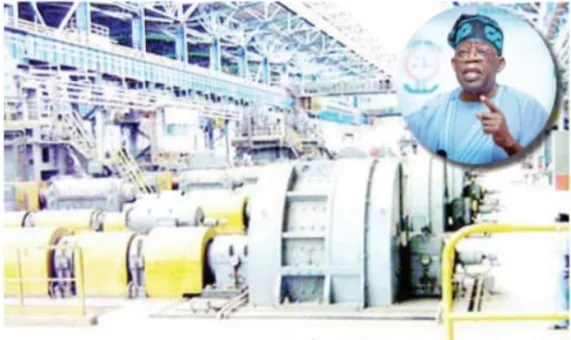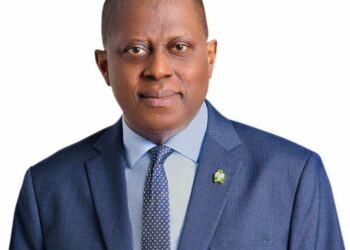It has been 43 years now since the federal government saw the need to build a steel rolling plant in order to industrialise Nigeria. Reports have it that the plant is more than 98 per cent completed.
The president-elect, Asiwaju Bola Ahmed Tinubu, on February 8, 2023, promised to resuscitate the Ajaokuta project so that Nigerians can begin to enjoy its numerous anticipated benefits.
Recently, President Muhammadu Buhari, revealed that his administration had invested almost $500 million to resuscitate the Ajaokuta project, and boasted that the investment made in the steel company will add $1.6billion annual income to the Nigerian economy and create over 500,000 estimated jobs.
“I am glad to report that as we begin to round off in office, we can genuinely say that our administration has rescued Ajaokuta from all legal disabilities.
“It is now ready for concessioning to a private investor with the right profiles to put it to work for Nigeria in general and Kogi State in particular,” Buhari said in Okene in Kogi.
According to the president, no other single project holds the key to unlocking the potential of the state as much as the Ajaokuta Steel Complex, which his administration inherited as a long moribund complex “strangulating under a tangle of local and international commercial disputes.”
Admittedly, the government said it would no longer be possible for it to revive the steelworks before the Buhari administration leaves office.
Thankfully, with the legal and other technical issues settled by the Buhari Government, the stage is now set for concessioning Ajaokuta. Consequently, 11 companies have indicated interest to take over Ajaokuta Steel Company on a concession basis. Three of the 11 bidders are Russian companies, the original contractors hired for the construction of the plant.
In September, the Nigerian government agreed to pay $496 million to settle an Indian firm’s claim over Ajaokuta steel.
The dispute followed the federal government’s revocation in 2008 of an agreement that handed control of the steelworks and the National Iron Ore Mining Company to Global Steel Holdings Limited, an Indian firm. In canceling the deal, the Umar Yarádua administration said the terms of the concession at the time were not favourable to the country.
“One of the major albatross on Ajaokuta was the concession that occurred under President Olusegun Obasanjo to Messers Global Steel Industries.
“Things went sour and they took us to court. The court case went on for about 12 years, but thanks to a patriotic Nigerian lawyer in the UK who handled the case very effectively.
“Global Steel came with a demand of $7 billion, but our lawyer was able to puncture holes in their case, and in the end, they had to settle for $496m. The judgment was favourable to Nigeria,” Mr. Adegbite said.
He said the COVID-19 pandemic deterred the current government’s plan to make Ajaokuta steel company functional before the end of 2022.
In 2019, the federal government had promised that Ajaokuta Steel would start (operations) before the Buhari administration leaves office. That is not possible anymore; not because of lack of effort but, especially because of COVID-19.
“We started the process in October 2019, when we went to Sochi, Russia, to attend a summit with Mr. President,” Adegbite said.
“On the sidelines of a bilateral meeting, we met with the Russian government, led by President Vladimir Putin and President Muhammadu Buhari, and we requested, among other things, that they should help us to resuscitate Ajaokuta Steel because the Soviets built Ajaokuta steel and they acceded to that request.
“The first thing we were to do was the technical audit to ascertain what was wrong, what needed to be done, what needed to be serviced and all that. That was what the technical audit was meant for,” Mr. Adegbite said.
According to him, the Russians were going to come in March 2020 to start the technical audit for three months.
“We agreed on the price, everything was concluded and made available by the Nigerian government and everyone would recall that COVID-19 started and we couldn’t do the technical audit. It was put in abeyance. That went on, all through 2020 and 2021. Then, we said, ‘let’s go another route, let’s expand our net.
“Now, we are no longer talking to only Russians, we are talking to eleven (11) foreign interests. Of the eleven interests I mentioned, of course, three are Russians,” he said.
Besides his promise to revive the Ajaokuta project, the president-elect has on various occasions said he intends to continue the legacy of President Buhari, especially his legacy on building infrastructure.
“With the ball set rolling by the Buhari administration, and Tinubu’s promise to build on Buhari’s legacy, Nigerians’ hope to finally have a steel rolling plant up and running may soon be realised,” Ayorinde Solomon, a social affairs analyst said.
An economist, and also a social affairs analyst, Dr. Francis Jatto, told NATIONAL ECONOMY that since the construction of the plant ceased in the mid-1990s, Nigeria has never been as close to realising her dream of having the Ajaokuta plant running as now. He added that if Nigeria loses this opportunity it is lost forever.
Interestingly, the Ajaokuta Plant comprises what PriceWaterhouseCooper categorised to be among Nigeria’s $900 billion dead assets.
The steel company was built by the Soviets between 1979 and the mid-1990s but has never produced steel as the project was never completed. It was also allegedly mismanaged.
As stated by President Muhammadu Buhari, Ajaokuta Steel Company holds the key to the industrialisation of Nigeria. To open that door to industrialisation, it is incumbent upon the next president to continue the legacy of the Buhari administration, especially considering the fact that the outgoing and incoming presidents are of the same party. That should imply the same ideology.
On the one hand, to renege on the onus to continue the Buhari footprint on Ajaokuta would amount to a waste of time and resources of the Nigerian taxpayer. On the other hand, that little extra effort of the next administration would bring the 43-year-old vision to fruition.





